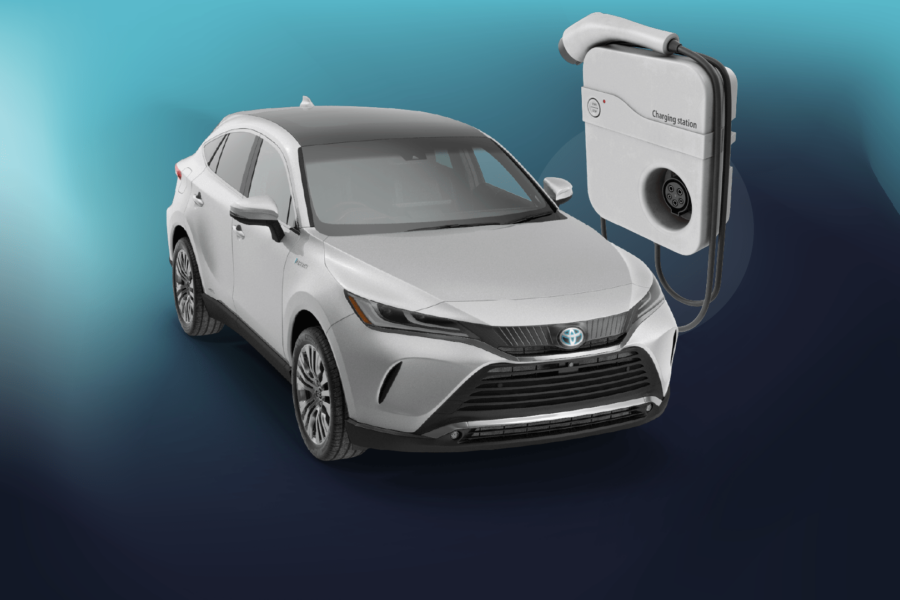
EVs for Private Hire – The Ultimate Guide
Electric Vehicles (EVs) and hybrids are an increasingly popular choice among UK private hire drivers. Though the upfront cost can be heavy, the low running costs make EVs an attractive option. for eco-conscious drivers.
But what if you’re not ready to make the switch to electric yet? As an Uber or Private Hire driver, you might be wondering about battery life, public charging, and passenger feedback. What are the best EVs for private hire?
We’ve got everything you need to know about EVs for private hire, so keep reading to get up to speed.
The Upfront Cost of an EV
The thorn in the side of any private hire EV driver is the initial cost. Unfortunately, EVs aren’t cheap.
The most popular choice, the Tesla Model 3, starts at £50,000 brand new. You can pick up a used at around £22,000 for a 2020 plate (source: Autotrader). However, this is the top-end luxury choice.
More affordable EVs are out there. It’s worth checking out the Nissan Leaf (from £25,000), Peugeot e-208 (from £27,000) or an electric MG. (source: carwow) Prices vary depending on make, model, year etc – so make sure you speak to your vendor for the best price.
We see it with laptops, phones, TVs – all kinds of tech where older models are cheaper, but no less effective. EVs are no different – and while expensive now, we can expect today’s prices to fall as the technology develops further.
EV Battery Range
Just like MPG, the mileage range of an EV varies. The Nissan Leaf has a relatively low range of 150 miles, meaning more charges.
Some Tesla, Hyundai and VW (among others) boast ranges of over 250 miles, which is comparable to a 1.5l petrol engine. When looking at vehicles, check the mileage range first!
The technology in EVs is constantly developing, so battery ranges will only improve. Plus there’s more money than ever funding the charging network, so it won’t be long until there’s a charging point on every corner.

How Much Does Charging an Electric Car Cost?
At-home charging is more convenient and cheaper than public charging. Due to the current energy prices, knowing how much charging an EV costs could be a deal breaker.
According to PodPoint, expect to pay £17 for a full charge from your home charger (depending on battery). Octopus Energy are offering even cheaper rates to charge your electric car at home between the hours of 11pm and 5am.
You can also charge when doing your weekly shop. Supermarkets such as Tesco now charge a tariff for using their charge points. Using the basic (slower) charging cable, you can expect to pay £12 to add 100 miles to an average EV.
Tesla charges extra for charging, at around £32 for a standard Model 3 on its Supercharge network. In comparison, you could expect to pay around £20 for a home charge of the same car.
Like motorway service stations, you can expect to pay a premium for convenience.
Apps like ZapMap, the Uber app (Android, Apple) or the Tesla app (Android, Apple) will help you find your nearest charging points. You can compare costs to charge and even choose rides based on how many miles you have left.
Make sure you’re insured with INSHUR. Get your free no-obligation quote and get your EV covered today.
EV Battery and Cables
Think of the battery like the heart of your EV, and the cables are the arteries. It’s just as important to look after these essential parts as it is with biological ones!
Replacement batteries can be costly. INSHUR covers damage to your battery as standard, so in the event of an insured incident, we’ll take care of you. Cover applies whether your electric battery is owned or leased. Be sure to check the policy wording for exclusions.
The charging cables can also be expensive to replace, INSHUR include cover for them as standard – even for third-party accidents like trips and falls away from the home. Exclusions apply, so be sure to Contact us to discuss your claim. You can also check the policy wording as above.
Also, be sure to check with your manufacturer or seller about any warranties on your battery or cables.
Electric Vehicle Battery Recycling
You might be wondering what happens to your battery once it’s no longer usable.
VW has pioneered a way to recycle batteries, recovering up to 90% of raw materials from post-consumer batteries. At their plant in Salzgitter VW use these components in new batteries and in home charging stations making them more efficient.
By recycling as much as possible we’ll not only secure the future of motoring, but also help the planet.
Road Tax for EV Private Hire Drivers
There are three types of road tax for EVs and Hybrids in the UK.
The government bases Vehicle Excise Duty on vehicle emissions, initial purchase price, and year of registration.
If you drive a battery powered EV, or a BEV, expect to pay £0 until April 2025. After this, you will move to the lowest band of vehicle tax.
Plug-in hybrid electric vehicles, or PHEVs, can cost up to £110 for the first year, and £155 for following years.
If you buy your EV for more than £40,000, the government will add a Premium Tax. Keep in mind this is in addition to regular road tax. In 2023, this premium tax is £355, but currently isn’t applicable to zero-emission vehicles.
The UK government benefits from the millions of pounds made each year on fuel excise duty. As fewer people visit forecourts, the UK government will have to change how it raises money from drivers.
Removing the £0 tax band is the first step – drivers can expect more changes to the way they drive in future.
Emission Charges in London
This one is London-centric, but something that we’re likely to see repeated in the UK’s larger cities in future. Cities like Bristol, Aberdeen and Portsmouth already have clean air zones in place to help tackle pollution issues.
Right now in London, EV taxi drivers are exempt from the £12.50 per day Ultra Low Emmission Zone, or ULEZ. On 29th August, the ULEZ was expanded across all London boroughs, so it’s even more important to make sure your vehicle is emission compliant. You can check whether or not your vehicle meets the standard here.
Private Hire and taxi drivers are also exempt from the Congestion Charging Zone until December 2025, thanks to TfL’s Cleaner Vehicle Discount.
EVs are exempt from fines in:
- Zero Emission or Ultra Low Emission Streets in Hackney & Islington
- Beech Street in City of London.
Unfortunately, these rules do not extend to hybrid vehicles and these will still be liable for the charges.
Can I Drive EVs for Private Hire or Uber?
As an Uber driver in London, you might already be aware of the company’s journey to zero emissions by 2025. You might therefore be wondering can I drive an EV or hybrid for Uber? And the answer is, absolutely.
Through Uber’s Green plan, pre-booked drivers can earn 10% more per trip if they’re using an EV. Uber also offered discounts on purchasing or leasing an EV through their Uber EV Assistance.
They’ve teamed up with car subscription specialists Splend to double the EV Assistance. You can find out more here.
Uber has included eco-friendly route mapping to it’s mapping system. Additionally, Uber offers passengers a 10% discount when they choose a greener ride.
Uber’s driver app will now show you your nearest charging stations and cost, so you can compare the best deal.
The app can recommend where to charge based on real-time factors. Features such as Battery-Aware Matching will ensure you never accept a trip outside of your battery’s current range.
You’ll also need to ensure you have the correct insurance for Uber. Choose from three coverage options with INSHUR which all meet Uber’s minimum standards.
EV and Hybrid Safety Features
Advanced safety features can include automatic emergency braking, blind spot monitoring and adaptive cruise control.
In order to charge the battery on the road, many EVs use “regenerative braking”. This means that the energy used whilst braking helps charge the battery.
Braking via an electronic motor means less pressure on the braking system, resulting in less chance of brake or equipment failure.
On-board technology means you’re more in tune with your electric vehicle than ever before. System updates and notifications mean there shouldn’t be any more confusing dashboard lights!
EV motors are famously quiet, so sound emitters increase the safety of your vehicle for pedestrians.
Getting a Private Hire Licence (London)
If you’re planning on driving in London, you need to apply for a Private Hire Licence or PHV. You can apply through the Transport for London (TfL) website.
You must have private hire insurance before you apply for the licence or if you’re renewing. Luckily, you can get hire and reward insurance in minutes with us.
Before gaining your licence, your vehicle will need an inspection. You can book an appointment at any time through the TfL website.
Bring paper copies of your documents to your appointment since digital copies are not accepted.
How Do I Insure My EV or Hybrid?
With INSHUR EV insurance, you can cover your electric or hybrid car online in minutes. We’re your insurers for all things private hire, including EVs and hybrid vehicles.
We like to keep everything online and accessible, therefore our private hire insurance policies are digital. Get access to your policy anytime, anywhere.
Some Uber drivers also drive for Uber Eats and other fast-food delivery platforms. INSHUR’s EV insurance cover includes food delivery and personal use, plus, our ‘Comprehensive Plus’ policies include a licensed replacement EV, where available, if you’re involved in a claim and your vehicle needs repair.
Need more convincing? Our partners include Uber, Ola and Free Now. Plus, Uber drivers get personalised quotes based on your driving score and free Instadoc upload.
Get EV car insurance cover that’s good for you, and good for the planet.
The Environmental Impact of an EV or Hybrid
The rise in electric cars is a great move for the environment, but is it really all smooth sailing?
Mining for lithium and other precious metals can be damaging to the local landscape.
And whilst EVs don’t require petrol or diesel, the electricity needed to charge them is sometimes still generated from coal and oil. Until we’re 100% reliant on greener energy, are EVs really as clean as they seem?
As a driver, you’ll need to weigh the pros and the cons. But with our dependence on vehicles, the move to EV can only be a good thing to improve localised air quality.
Where to park your EV or Hybrid
Did you know there’s a £100 fine for parking in a designated EV space and not using the charger?
Some councils offer free parking for EVs in their car parks – always check signage before you leave your vehicle.
Electric vehicle parking bays are easy to spot, but if you’re parking and not charging, use other available spaces.
A typical EV parking spot
Passenger Ride in an Electric Vehicle
Thanks to a lower centre of gravity, great suspension and a quieter engine, an EV is an ideal ride for passengers.
Passengers love luxury interiors and lots of tech. With an EV, they’re sure of a safer and more comfortable ride.
Plus, as mentioned before, passengers can get discounted rides for choosing an EV or hybrid, meaning more potential earnings for you.
Our Top 3 Best EVs for Private Hire Drivers
(Prices as of August 2023)
1. Hyundai Ioniq Electric
This car has it all – good looks, classy interior, crisp handling and intense attention to detail.
Expect to pay – from £30,750
Range – 155 miles
Battery – 38.3 kWh
Slow charge – 20 hours
Fast charge – 6 hours
Rapid charge – 47 mins
2. Volkswagen ID-3 Long Range
Cool looks, amazing performance, a huge range and a great cargo capacity, this car is a perfect choice for UberX. The only catch? It’s not available in the US.
Available – UK only
Expect to pay – from £37,115
Range – 280 miles
Top speed – 99 mph
Battery – 77 kWh
Slow charge – 39 hours
Fast charge – 8 hours
Rapid charge – 36 mins
3. MG4 EV
Electric MGs are a popular choice for our drivers, up there with the Tesla Model 3. The MG4 boasts a suite of safety features to ensure passenger, pedestrian and driver safety. With plenty of interior space, your passengers will never want for extra legroom.
Expect to pay – from £26,995
Range – up to 323 miles
Battery – 77 kWh
Slow charge – 7.9 hours (7kw charger)
Fast charge – 52 minutes (50kw charger)
Rapid charge – 39 mins (150kw charger)
Conclusion
We hope this goes some way to helping you choose whether or not to make the switch to an electric vehicle.
Though the initial cost can be expensive, EVs benefit from lower running costs. There’s no need to wait for a fuel pump at petrol stations either. Plus, no exhaust emissions is better for the environment.
At INSHUR, we know the future of UK motoring is changing. That’s why we’ve created tailored EV insurance for private hire drivers.
Get a free, no-obligation quote now.
Plus, if you refer a friend to an annual policy, you’ll both receive a £30 voucher!
Further Reading
INSHUR Benefits of Driving an EV
VW Battery Recycling Initiative






